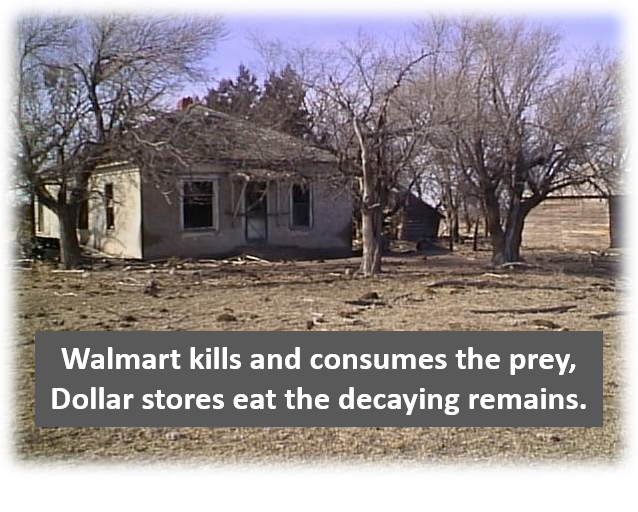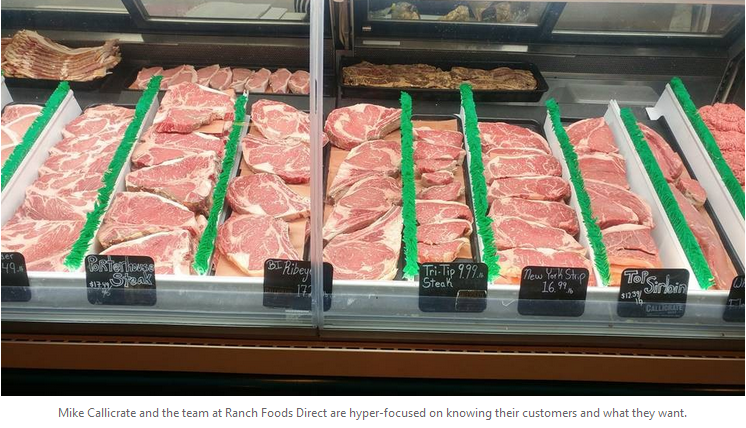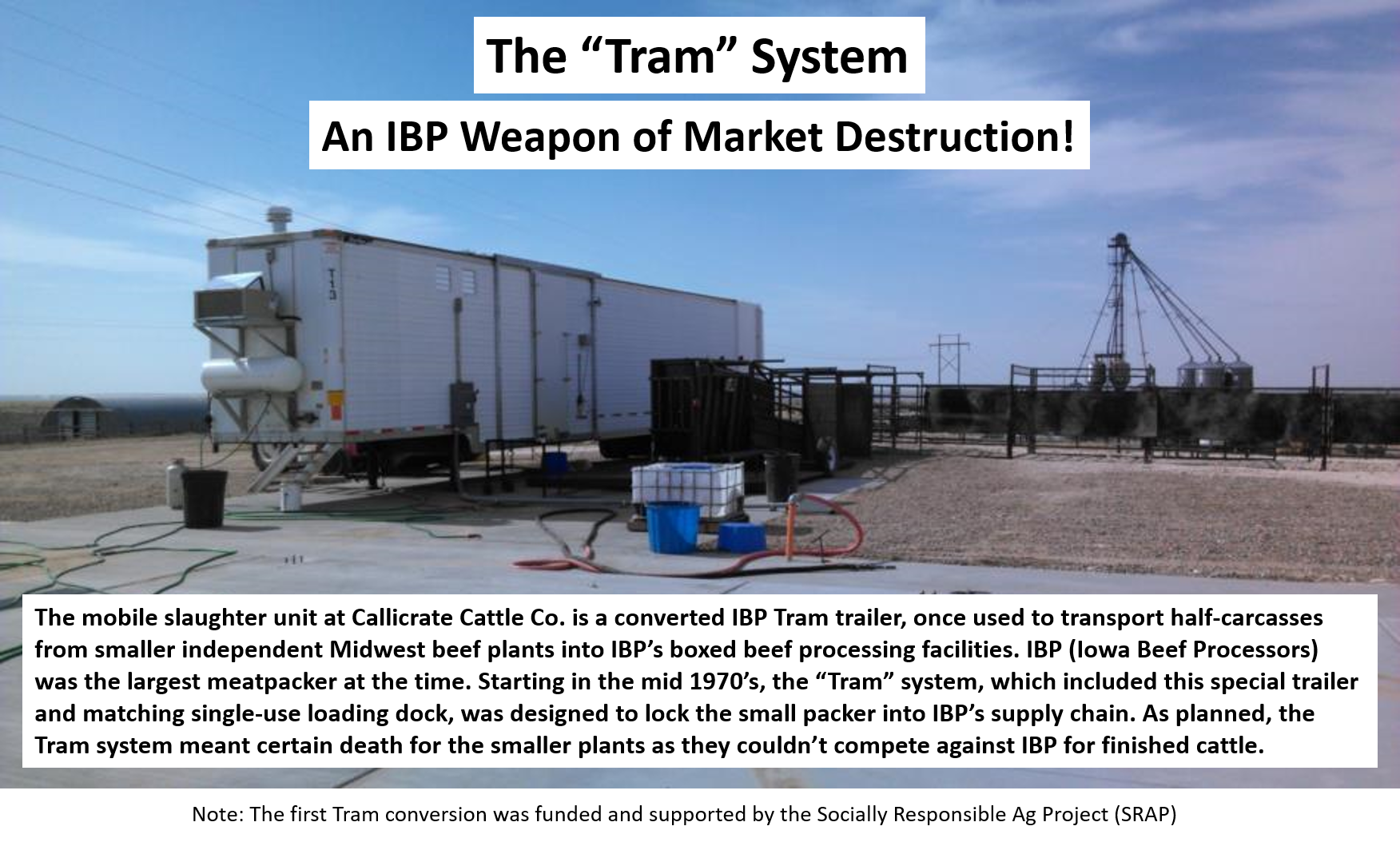By Kerry Lea Hoffschneider
A few weeks ago, when the COVID-19 panic hit, retail sales at Ranch Foods Direct, owned and operated by Mike Callicrate, were up 3.7 times compared to a year earlier. The sales are leveling out now, however, this independent model of direct to the consumer food items like meat, produce and eggs are increasing in demand.
“I am a rancher who is in the meat business,” said Callicrate, a member of the Organization for Competitive markets, who has been a long-time champion for beef and cattle producers after being blackballed by large meatpackers after he, along with a group of other ranchers, sued the packers for their monopoly of the market.
“I got blackballed by the big packers and built my own pathway to the market. My ranch is in St. Francis, Kan. and we slaughter onsite and ship the carcasses to Colorado Springs where they are processed and distributed. I have a pretty good idea of the process from the cow being bred to being steak on a plate,” he explained.
“Our workers, I am so proud of them,” Callicrate said about the effort the team at Ranch Foods Direct has made to meet the dramatic up-tick in demand after COVID-19 hit, “After the virus began, there was not a package of meat anywhere in Colorado Springs to be found in a big box. In this new age of globalization, the supply chains didn’t work in the times they were most needed, and we just proved it. We don’t even have enough face masks or medical equipment we need, let alone the meat on the shelves.”
“The big packers have been cooperating since they became members of the National Cattlemen’s Beef Association (NCBA). In fact, the late Hughes Bagley – a former executive vice president of IBP, told me they’ve been cooperating since the 1970s,” Callicrate said.
Callicrate said he met Bagley, a former executive of IBP who was suing IBP for cheating him on his retirement the same time he was part of the cattlemen’s group suing IBP that led him to be blackballed, “Hughes developed what they called a ‘cattle pack’ for IBP. IBP was not getting enough of the entire animal sold. Coming from the retail sector, Hughes suggested that IBP put a program together that would incentivize retailers to purchase the whole animal. IBP literally credited Hughes for saving the company.”
“Hughes explained the ‘tram system’ to me. The small packer could not sell carcasses anymore to retailers because IBP had developed the box, which included the ‘cattle pack.’ The small packer, unable to box their beef, was forced to sell their carcasses to IBP. The problem with that is IBP competed against the small packer in the trade with fat cattle and the only buyer was IBP for the carcass,” he said.
“The ‘Tram’ was a combination of special semi-trailers designed to hold full half carcasses, along with specially designed docks that would only accommodate the tram trailer, thereby locking the small plant into the IBP tram system. And, it’s clear now because the small packers are nearly all gone. IBP dominated and took over.” Callicrate explained.
“What happened in 1996, is they blatantly jumped in bed together as new members of the NCBA. National Beef, Cargill – and the other packers gathered at the NCBA convention. We have all been flat-out played for fools and the big feedlots have also been part of the problem. The big feedlots, having lost a real competitive market, decided to align with the packers, beating the hell out of the cash market,” he went on.
“In the 1980s I ran a custom feedlot and when people would send me their cattle to feed, I increasingly got the feeling I was a ‘transfer agent,’ in this rigged game. The meatpacker stole the wealth of the cattle owner and shared it with the big retailer. The feedlot is really just a ‘middleman’ that wants a ‘full hotel,’” he explained. “I had this shameful feeling of being that ‘transfer agent,’ and acting as the ‘tool’ of the meatpacker.”
Callicrate said cattle producers need to know many of the big feedlots are getting “seriously big” preferences for contributing a captive supply of cattle, “It’s known that some feedlots are secretly getting kickbacks annually on the live weight they sell to the packer. At 10 cents per pound live weight, that can be around a $135 advantage. Consider you are a Midwest farmer feeder and everything your farm is producing is going through your cattle. What if you go to the sale barn to buy feeder cattle and the guy has $135 advantage over you? This is how we have lost more than 80,000 feedlots. That big feeder also gets to sell his cattle in a timely fashion, when they are ready and not a month or more later. The United States Department of Agriculture (USDA), armed with the Packers & Stockyards Act, has done nothing about this unfair and illegal preference.”
“Trump has done nothing but make it worse,” Callicrate continued. “He’s even allowed imports of beef from Brazilian and African countries that are infected with foot and mouth disease. Can you imagine COVID-19 on one hand and dealing with foot and mouth disease outbreaks on the other?”
“The South American and other global producers are under the boot of the same big packers too. We are all losing. We are burning down the Amazon to plant more corn and soybeans so that JBS and Cargill can have cheap feed and so China can have feed for their Smithfield hogs. We have allowed the corporate takeover of our industry and our country,” he said.
Being blackballed by the meatpackers has forced Callicrate to learn some difficult lessons about all areas of the industry and how global markets work against the average U.S. producer, “We had 23 Chipotles at one time at Ranch Foods Direct. We were in talks to expand to over 50 locations including the Denver area. It was going to be a great deal for our company. Without notice, instead of expanding the business, Chipotle informed us that we were losing all the business. We were replaced with Australian beef at 30 percent below our cost of production. I had $250,000 of beef inventory on hand and a processing machine valued at $185,000 that hasn’t run since.”
“The Colorado Department of Agriculture is considering a new local/regional ‘Colorado’ brand to better support the region’s farmers and ranchers. In an interview last week, I warned that new infrastructure must be in place to sell directly to the consumer, otherwise the existing monopoly-controlled system will continue to extract the valuable wealth produced on the region’s farms and ranches. Those corporations will not allow you to make any money, you are a cost to be reduced, essentially slaves to them,” he said.
That is why Ranch Foods Direct continues to focus on maintaining the trust of their customers that buy directly from them. Callicrate said for now he will continue to invest the profits from Callicrate Banders to keep their efforts going and to fight the big packers and their alignment with large, corporate retailers and distributors, “On any day, the big packers can manipulate the cattle futures, and thereby cattle prices, to their advantage. The cattle futures have been merely a mental conditioning tool, making willing sellers out of desperate cattle owners, and no longer serve any good purpose.”
“The cattle business has been a fool’s game for at least the last 30 years, and we have been the fools. During that time, cattle producers have lost 30 percent of their share of the consumer beef dollar, amounting to $1,000 per head loss at the farm and ranch gate. Unlike football, there are no referees in this game,” he said adamantly.
“The U.S. is a colony of big, corporate power. When is the last time a new mile of fence was built? So, without addressing the real problem of market concentration, we go out and throw money at the farmers. Without a market, anything you give the farmer or rancher will, in turn, be extracted by the big companies either through higher input costs or lower output prices. That is one of the reasons why prices for corn, wheat and soybeans are the same today as they were in the 1970s – that is not inflation adjusted, that is actual dollars,” he pointed out.

“One of the deadliest diseases that humanity has ever faced is aggressive price shopping consumerism, where you search for the cheapest of everything. You know what you end up with? You end up with more and more rural decline, broken-down, abandoned main streets with a Dollar Store at the edge of town. Farmers and ranchers, America’s real wealth creators, are now living in a second-hand Dollar Store economy,” Callicrate said and adamantly.
In closing, he urged his peers in agriculture to take action and lead in a community-driven fashion, “Make sure your neighbor is okay and you are treating your neighbor like they matter, not like in the 1980s when people were hoping the neighbor would go broke so they could get their land. It’s time to go home and make your community as good as you can make it.”
Follow Mike at: https://nobull.mikecallicrate.com/
















Really very 1970s/2022 actual reality. If the American Drams contry is blooding, what to do or where to run at emerging countries like Colombia.